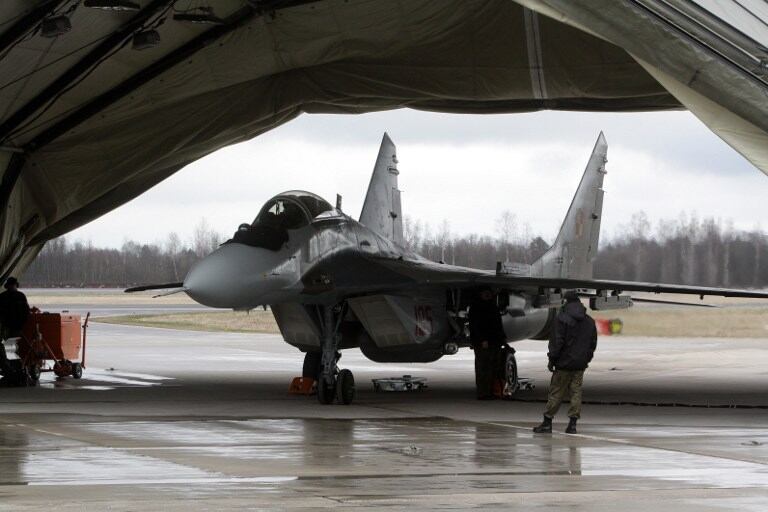The Pentagon is sending two Patriot surface-to-air missile batteries to Poland — a move U.S. European Command said would “proactively” counter “any potential threat” to U.S. and NATO forces in the alliance’s territory.
Roughly 4,700 soldiers from the 82nd Airborne Division were dispatched to Poland last month to bolster NATO’s deterrence posture as Russian forces invaded Ukraine. Poland’s border has been a conduit through which man-portable anti-tank and anti-aircraft weapons have traveled to Ukrainians fending off the Russian military.
The Patriot systems, which will come from the Rhine Ordnance Barracks in Germany, can track and intercept ballistic missiles launched at U.S. forces in the event of an attack. Russia has fired more than 600 missiles into Ukraine, and the Patriot system could also guard against a stray shot if the war creeps closer to Polish borders.
“This is a prudent force protection measure that underpins our commitment to Article Five and will in no way support any offensive operations,” U.S. European Command spokesman Scott Ghiringhelli said in a statement. “Every step we take is intended to deter aggression and reassure our allies.”
Article Five is the NATO’s collective defense principle. It requires all member states to treat an attack on one as an attack on the entire alliance.
RELATED

The deployment of the two Patriot batteries will likely reassure Polish allies after a faux pas early this week involving the attempted transfer of Polish aircraft to Ukraine.
In statements Tuesday, Poland suggested it was “immediately” sending all of its MiG-29 Fulcrum fighter jets to Ramstein Air Base in Germany so that U.S. officials could give them to Ukraine.
The Pentagon rebuked the offer Tuesday evening. Pentagon Press Secretary John Kirby said the move was not “tenable,”
“The prospect of fighter jets ‘at the disposal of the Government of the United States of America’ departing from a U.S./NATO base in Germany to fly into airspace that is contested with Russia over Ukraine raises serious concerns for the entire NATO alliance,” Kirby said in a statement. “It is simply not clear to us that there is a substantive rationale for it.”
The airspace over Ukraine remains contested, to the shock of many observers of the Russian Air Force. During a call with U.S. senators over the weekend, Ukrainian President Volodymyr Zelenskyy requested the U.S. send more Russian-made planes that his pilots already know how to fly, and drones, to help Ukrainians battle for the skies there.
President Joe Biden and other top officials have ruled out Zelenskyy’s requests for a no-fly zone. Such a measure would require that the U.S. Air Force shoot down violators, including Russian airmen, which could raise the specter of nuclear war.
Kyle Rempfer was an editor and reporter who has covered combat operations, criminal cases, foreign military assistance and training accidents. Before entering journalism, Kyle served in U.S. Air Force Special Tactics and deployed in 2014 to Paktika Province, Afghanistan, and Baghdad, Iraq.




